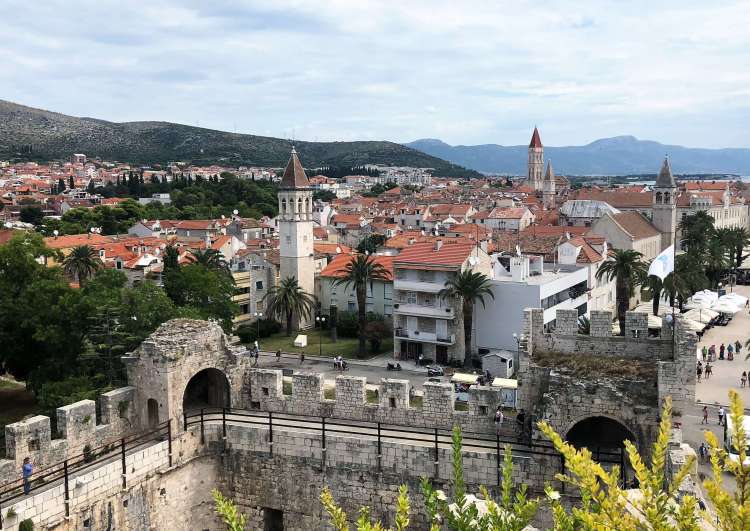
We spent almost two weeks in Croatia during our European Summer Road Trip, and I’ve already written a post about the time we spent in Samobor, Plitvice Lakes National Park and the island of Pag. In this post, I will share our time in Trogir and Split, two beautiful and historic cities (and UNESCO World Heritage sites), on the Dalmatian coast (if you are wondering like I was, yes, the Dalmatian dog breed did originate here!)
Trogir
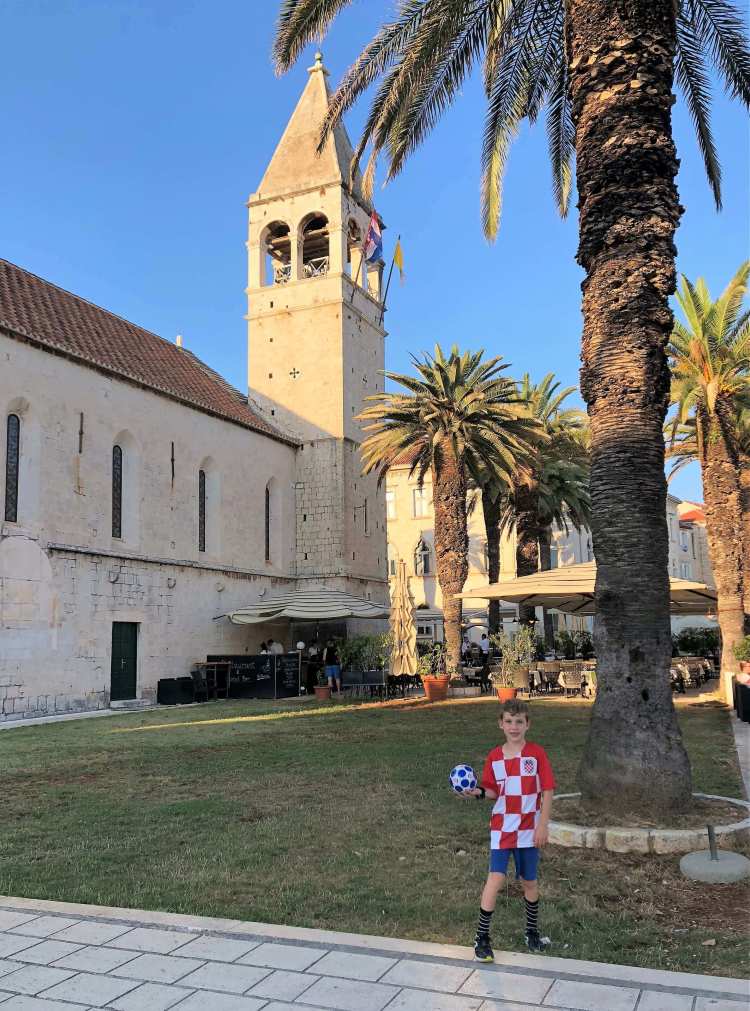
I mentioned in an earlier post that we bought the boys a football jersey of their choice during our travels. L (im)patiently waited until we got to Croatia, so he could get a Croatia National Team jersey of Rakitic, a star of their 2018 World Cup runner-up team, and also a star of FC Barcelona, one of L’s favorite football teams in Spain. You will see a lot of this jersey from this point onward!
When planning this part of the trip, we decided to do things a bit backwards, and instead of staying in the larger nearby city of Split and taking a day trip to Trogir, we decided to instead stay in Trogir and take a day trip to Split. This was a good approach for us because we got lots of time to wander around Trogir when it wasn’t too crowded from day trippers, and enjoyed staying in a slightly smaller town. We may have short changed Split a bit, but with only two days in these two cities, we knew we couldn’t see everything they both had to offer. We will just put Split on our list to visit again next time we go to Croatia.
Trogir’s entire historic town center is designated a UNESCO World Heritage site, and after walking through the cobblestone streets of the town, I can see why.
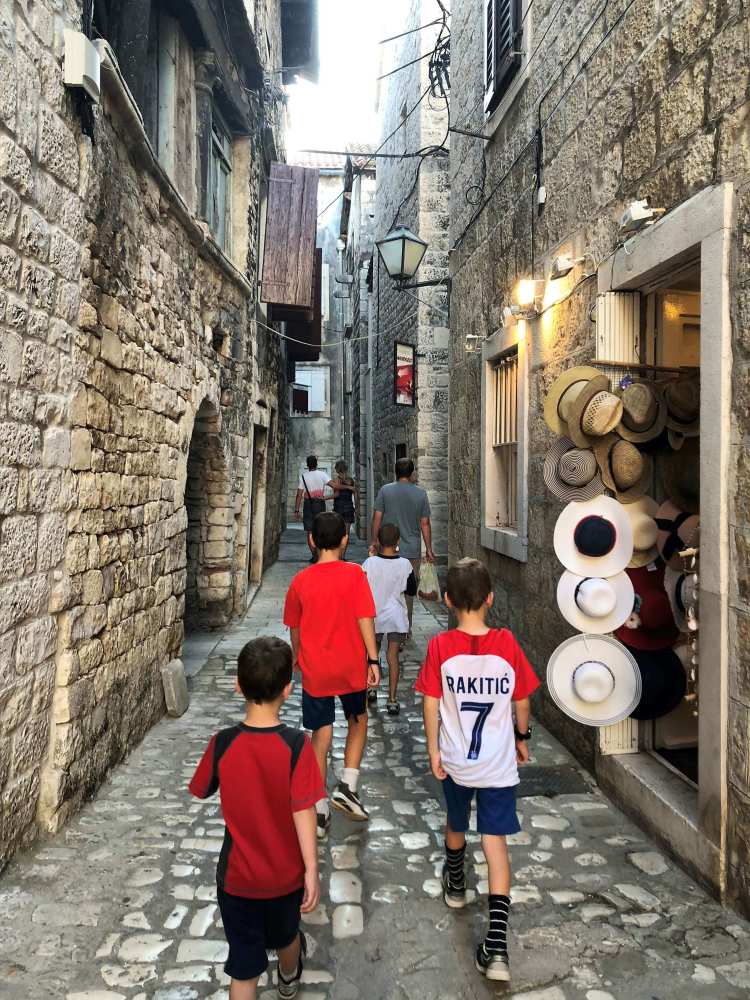
Not only is the town itself immensely charming, but it is located right on the sea, so after wandering the narrow streets, you come out onto a palm tree-lined waterfront full of luxury sailboats.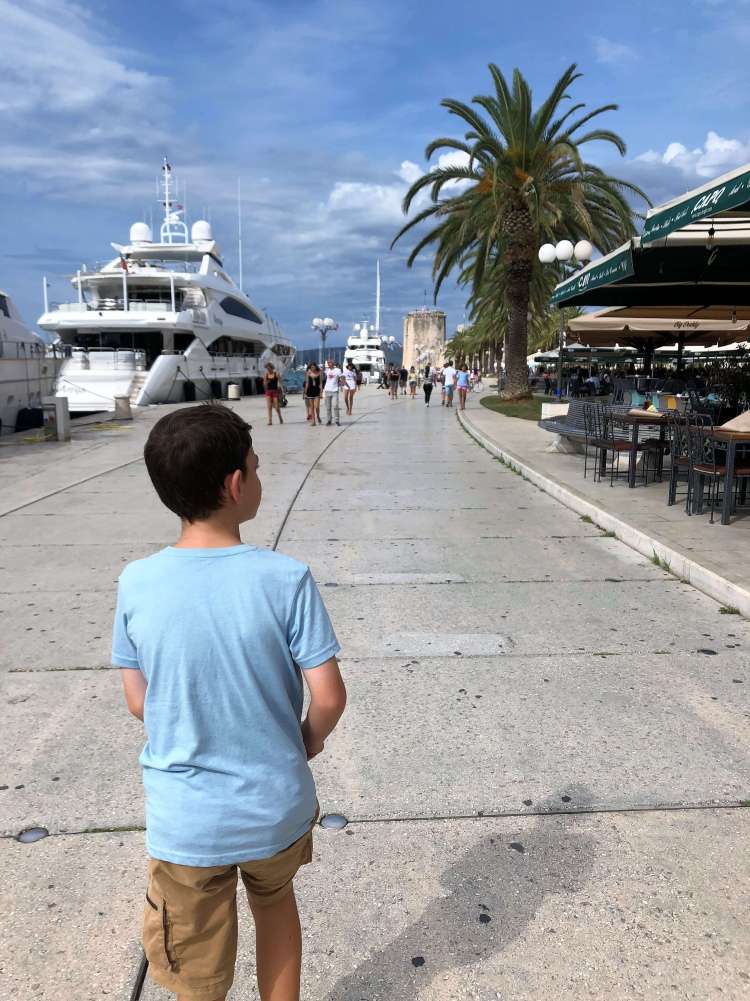
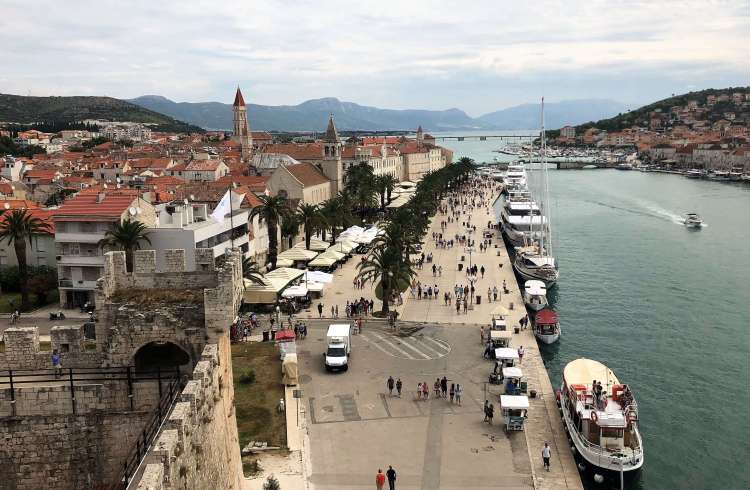 At the end of the esplanade sits Kamerlengo Castle, a fortress that was once connected to the city walls.
At the end of the esplanade sits Kamerlengo Castle, a fortress that was once connected to the city walls. 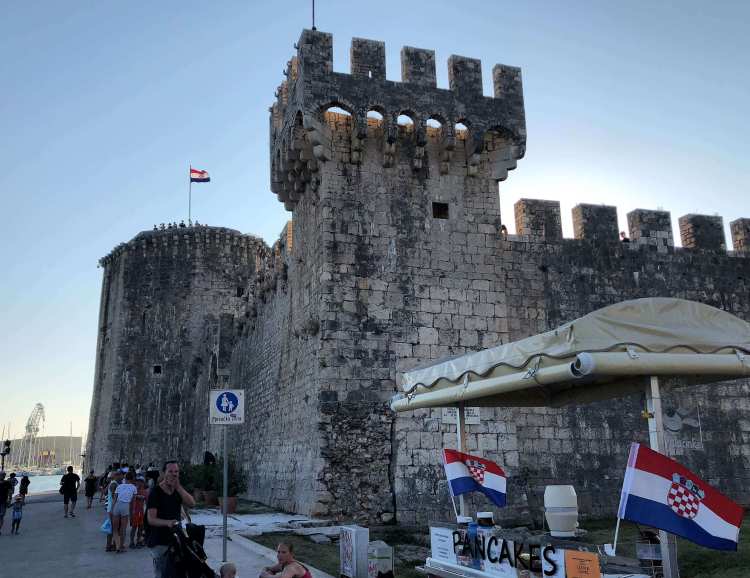 There is nothing inside the castle, but we were able to climb up the walls to get a wonderful view over Trogir.
There is nothing inside the castle, but we were able to climb up the walls to get a wonderful view over Trogir.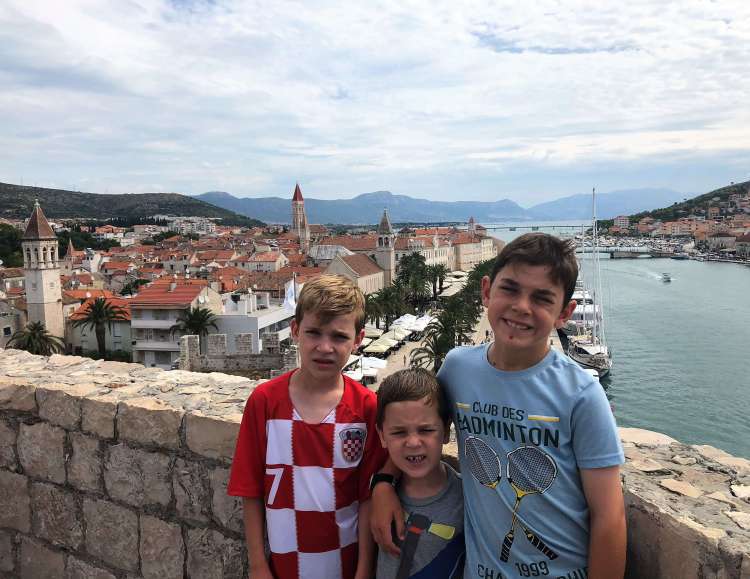
Split
While we stayed two nights in Trogir, we spent most of one day in Split. Located just about half an hour from Trogir, Split is Croatia’s second largest city. Without a car, you can easily reach Split by bus or water ferry. We took a bus there, then a water ferry home, the exact opposite of how we should have done it.
Once we arrived at the bus station in Split, we took a fairly short walk to the Old Town, which largely consists of the famous Diocletian’s Palace, yet another UNESCO World Heritage site, which was built as a retirement home for the emperor Diocletian in the 4th century AD. The palace is enormous, and eventually (a few centuries after Diocletian) housed many of the homes, restaurants and shops of the local residents. The city really grew around and into the palace and it is hard to tell where the Palace stops and the old town begins.
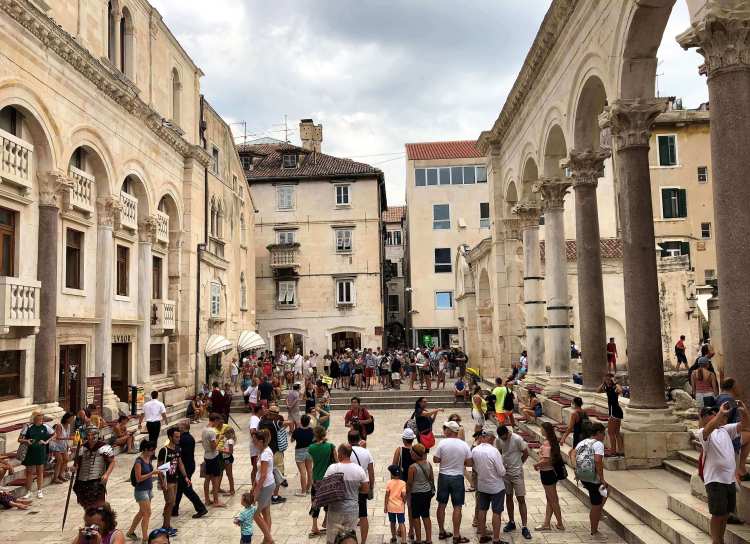
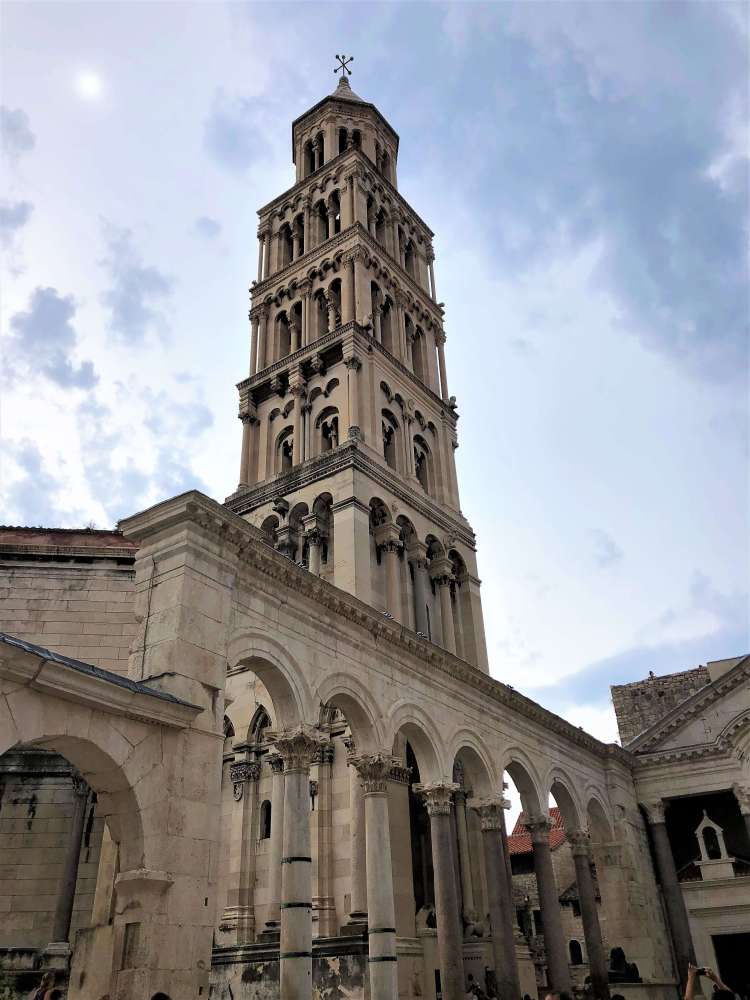
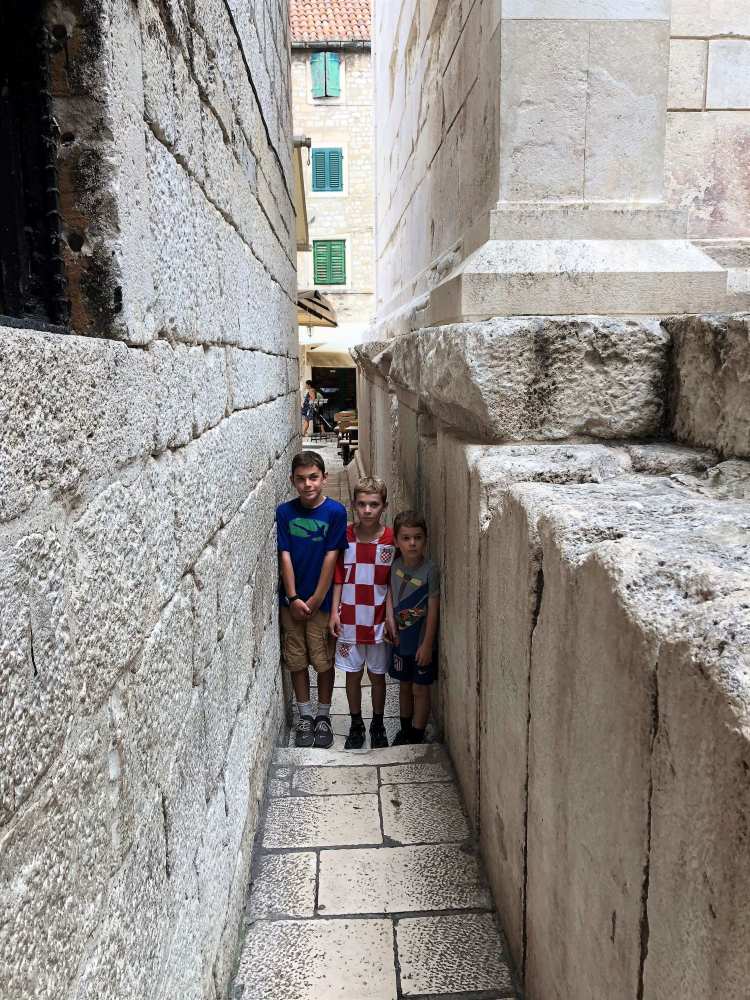
This street name is “Let Me Pass” and is one of the narrowest streets in the world, wide enough for only one adult (or three kids, apparently) to pass through at a time, according to our tour guide.
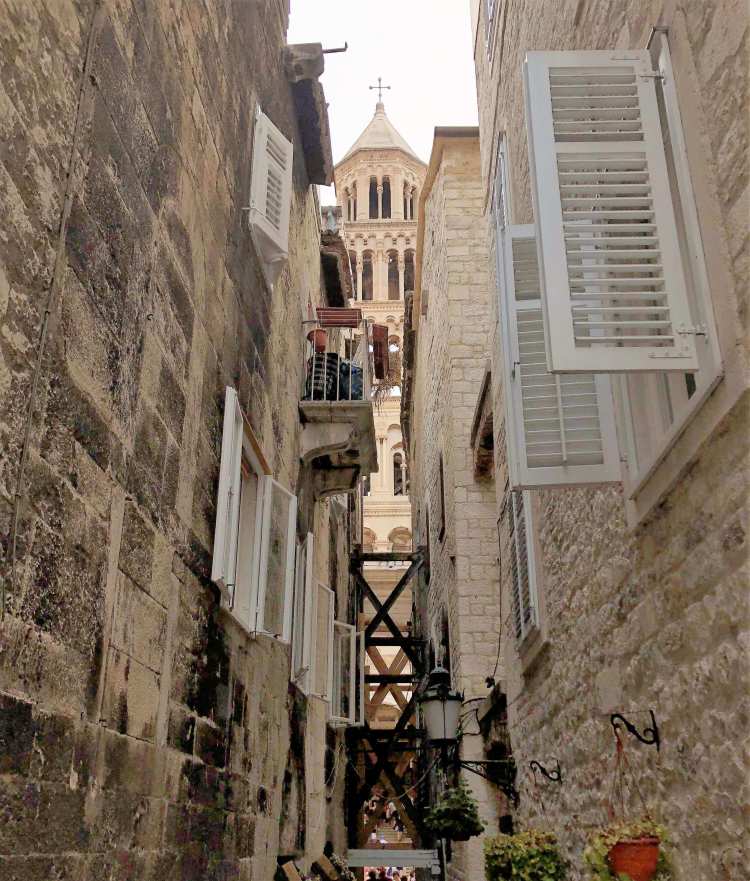
After our tour through Split’s Old Town, we grabbed some food (pizza and crepes, always a good bet!), and headed to the port to take one of the ubiquitous Croatian ferries back to Trogir (running multiple times a day, this is an actual public transportation option). While it was cool to take the ferry, we planned this all wrong, and ended up in the water as a storm approached.
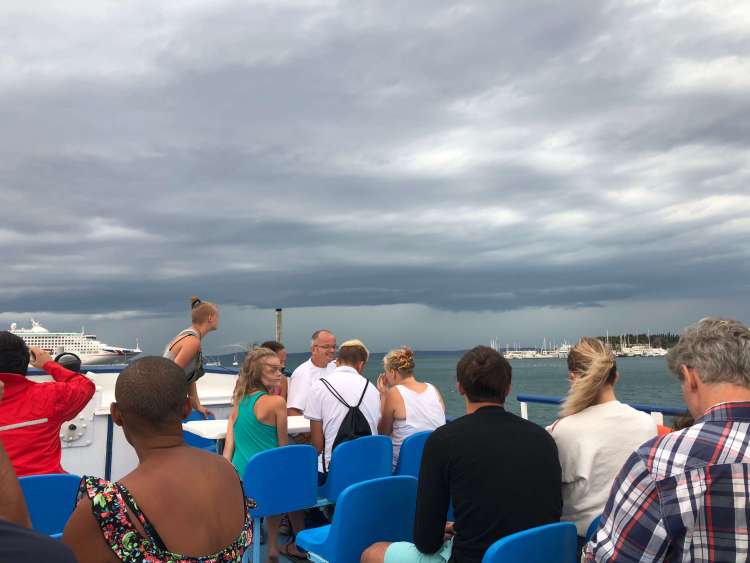
dark storm clouds right where we are heading
We tried to sit outside, but the wind was blowing something fierce and we ended up on the lower deck, still getting soaked once the rain started. We made it through the big waves, lightning and rain, which stopped once we arrived in Trogir, but we certainly could have had a more pleasant ferry experience without the storm.
We only had two days total to visit both Split and Trogir, so we did feel a bit rushed, but we were happy we made the stop and could visit these beautiful seaside towns. We will have one more stop in Croatia when we visit Dubrovnik, so stay tuned for more on that in another post.



1 Comment
arianajo · October 29, 2018 at 10:52 pm
Great post! Croatia is on my list for sure. It looks like a beautiful place.
Comments are closed.